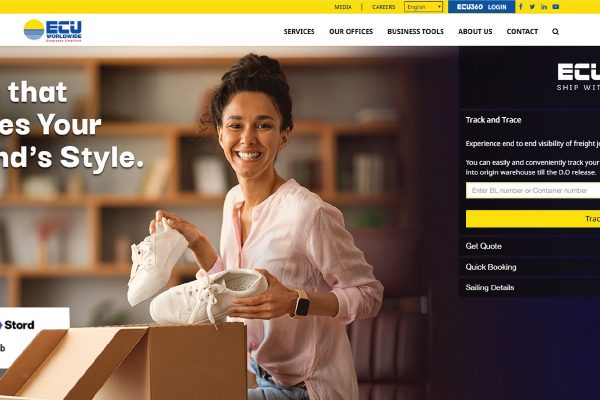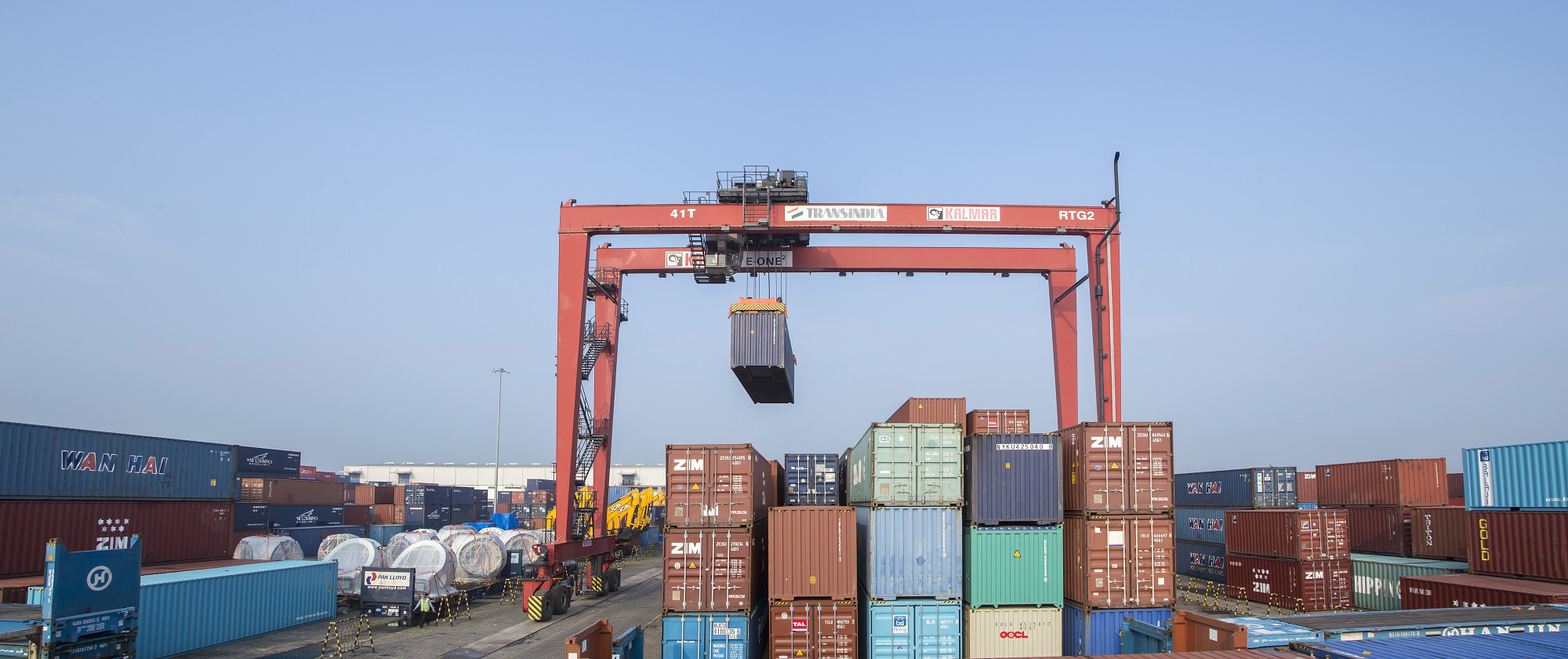Direct Port Delivery (DPD), an initiative floated by the Indian government to hasten clearance at overburdened ports offered companies a cheaper and faster way to get their products off ships and to their facilities. However, crimped for space—and with their products piling up—these firms found cost savings pruned or disappearing and headaches of managing this pile up growing. So, a retooled hybrid DPD-CFS (Container Freight Station) offering aimed to cushion this impact and offer a cost-effective solution at ports. Sensing this shift, Allcargo Logistics nimbly built up its business in this space and is now looking to rapidly increase its presence in this market by offering competitive pricing and industry-leading sales and support to its users.
Introduced nearly three years ago, the Direct Port Delivery (DPD) programme was meant to provide a cost-effective solution for foreign traders to get their material in and out of India’s congested ports. In the first six months many of them signed up quickly for this new programme, which offered direct transfer from port to company facilities, without a pit stop (and additional cost) at a CFS or warehouse. Traditional CFS players found themselves losing traction, as traders plumped for this apparently more streamlined route.
Initially, DPD got off to a bright start. In JNPT it replaced a sluggish green channel programme that had barely a 2% share in the market. This new offering quickly cornered a quarter of the market, offering a cost-effective logistics option to companies. During the first 12-month honeymoon period, droves of firms opted for DPD, but the fascination faded, especially for those with limited warehousing space. Quickly, India’s Customs tweaked this model to offer a DPD-CFS model to allay some of these concerns.
“We have smartly rebuilt our business by keeping a close watch on market trends and customer needs,” says Ms. Sumita Banerji, Vice President, Allcargo Logistics. “We are now poised to provide businesses with industry-leading, competitively priced DPD-CFS services,” she continues. To moot, Allcargo offers a global network operating through more than300 offices in over 160 countries.
Sensing a shifting market
As containers piled up outside factories, companies ended up forking out extra for trucks and trailers that waited outside these factories which had no space to house this extra cargo. If the DPD system worked well for companies with plenty of space for storage, many other companies found themselves dealing with new headaches. A new hybrid that sought to marry the benefits of old and new called DPD-CFS was unveiled—and Allcargo was able to quickly steer its ship and build a growing business in this space.
Despite facing the onslaught of the DPD business, Allcargo successfully retooled itself, kept an ear to the ground and sensed a change in the market. It increased sales strength and redefined offerings to cater to a larger base of customers. There was a need to create new processes and Allcargo immediately responded by realigning resources. In no time, a team of just four salespeople grew to a team of 12. A specialised customer service desk and sales support team were set up to address customer requests. Innovative programmes were set up to provide lead generation opportunities even to the operations and accounts teams.
Growing presence
While Allcargo had a 9% market share nationally, the onset of DPD affected fortunes, as customers (especially those with low-value cargo such as scrap), decided to literally jump ship. However, owing to the challenges of utilising a purely DPD model, it became possible to get back to many of them and regain their business. Leveraging what the team terms a PPT – People, Process and Technology – pitch, Allcargo managed to convince customers to sign up for this hybrid approach to manage their cargo.
In a competitive market—Jawaharlal Nehru Port alone has some 33 different CFS operators for example—Allcargo has performed strongly. Market share is back up to around 9% and many new customers have been won over too. At the port, movement from the terminal to the port is fast even during peak congestion times, because of using an online booking system to expedite movement. Issuing accurate and detailed e-tariffs to customers, using an in-house solution and having a well-honed team on the ground, helps offer deliveries around-the-clock too. This makes Allcargo a highly operationally efficient and cost-effective service provider.
Listening to customers
With these changing tides, Allcargo has been able to build a strong DPD-CFS business. “One important facet of recasting a business that is facing strong headwinds is to listen closely to your customer—and their changing needs. For instance, in this case, it meant many of them wanted to move from just transferring their material from Place A to B to unpacking their luggage—what we call destuffing their containers—rather than holding up these containers in long lines at their factories and facilities. That is what we capitalised on”, says Mr. Prakash Tulsiani, Executive Director and CEO – CFS-ICD, Allcargo Logistics.
Enthused by the cost differential offered by DPD, many low-value shippers (cheap raw material and scrap), opted to use this scheme and shift away from the traditional CFS route. However, even for these companies, Allcargo offered better value for their business—competitive rates and strong sales and support—to build a compelling business proposition. Allcargo is clearly strong in a growing market: DPD-CFS today accounts for around 60% of the market and this could take a three-quarters share, according to industry estimates. In contrast standalone DPD’s share is below 10%.
Allcargo’s strong relationships with shipping lines backed by teams across the globe, a glorious legacy of over 25 years and expertise across varied logistics businesses make it an ideal partner benchmarking against the best in the market.














